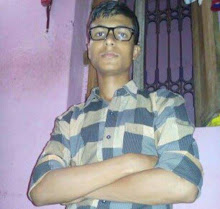last january, the Chinese Academy of Sciences invited Liu Cixin, China’s preeminent science-fiction writer, to visit its new state-of-the-art radio dish in the country’s southwest. Almost twice as wide as the dish at America’s Arecibo Observatory, in the Puerto Rican jungle, the new Chinese dish is the largest in the world, if not the universe. Though it is sensitive enough to detect spy satellites even when they’re not broadcasting, its main uses will be scientific, including an unusual one: The dish is Earth’s first flagship observatory custom-built to listen for a message from an extraterrestrial intelligence. If such a sign comes down from the heavens during the next decade, China may well hear it first.
In some ways, it’s no surprise that Liu was invited to see the dish. He has an outsize voice on cosmic affairs in China, and the government’s aerospace agency sometimes asks him to consult on science missions. Liu is the patriarch of the country’s science-fiction scene. Other Chinese writers I met attached the honorific Da, meaning “Big,” to his surname. In years past, the academy’s engineers sent Liu illustrated updates on the dish’s construction, along with notes saying how he’d inspired their work.
But in other ways Liu is a strange choice to visit the dish. He has written a great deal about the risks of first contact. He has warned that the “appearance of this Other” might be imminent, and that it might result in our extinction. “Perhaps in ten thousand years, the starry sky that humankind gazes upon will remain empty and silent,” he writes in the postscript to one of his books. “But perhaps tomorrow we’ll wake up and find an alien spaceship the size of the Moon parked in orbit.”
In recent years, Liu has joined the ranks of the global literati. In 2015, his novel The Three-Body Problem became the first work in translation to win the Hugo Award, science fiction’s most prestigious prize. Barack Obama told The New York Times that the book—the first in a trilogy—gave him cosmic perspective during the frenzy of his presidency. Liu told me that Obama’s staff asked him for an advance copy of the third volume.
At the end of the second volume, one of the main characters lays out the trilogy’s animating philosophy. No civilization should ever announce its presence to the cosmos, he says. Any other civilization that learns of its existence will perceive it as a threat to expand—as all civilizations do, eliminating their competitors until they encounter one with superior technology and are themselves eliminated. This grim cosmic outlook is called “dark-forest theory,” because it conceives of every civilization in the universe as a hunter hiding in a moonless woodland, listening for the first rustlings of a rival.
Liu’s trilogy begins in the late 1960s, during Mao’s Cultural Revolution, when a young Chinese woman sends a message to a nearby star system. The civilization that receives it embarks on a centuries-long mission to invade Earth, but she doesn’t care; the Red Guard’s grisly excesses have convinced her that humans no longer deserve to survive. En route to our planet, the extraterrestrial civilization disrupts our particle accelerators to prevent us from making advancements in the physics of warfare, such as the one that brought the atomic bomb into being less than a century after the invention of the repeating rifle.

At the end of the second volume, one of the main characters lays out the trilogy’s animating philosophy. No civilization should ever announce its presence to the cosmos, he says. Any other civilization that learns of its existence will perceive it as a threat to expand—as all civilizations do, eliminating their competitors until they encounter one with superior technology and are themselves eliminated. This grim cosmic outlook is called “dark-forest theory,” because it conceives of every civilization in the universe as a hunter hiding in a moonless woodland, listening for the first rustlings of a rival.




No comments:
Post a Comment